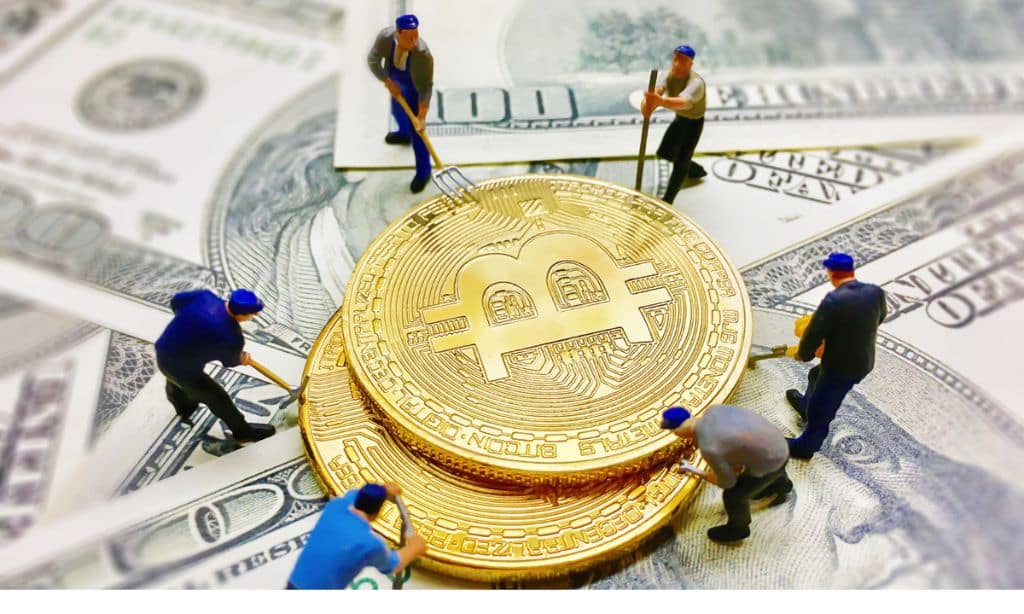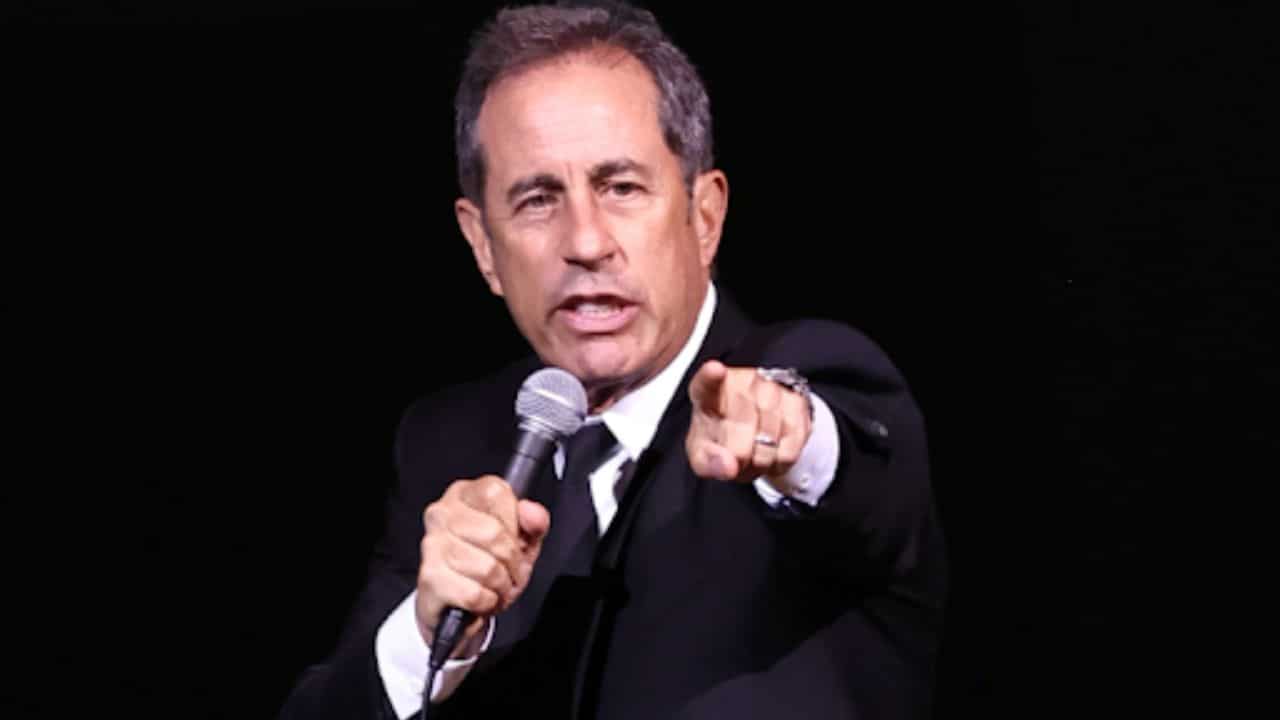Deciphering the murky world of money laundering can feel like navigating a dark maze. A striking example is the Maxim Kurbangaleev Money Laundering. He’s reportedly linked to substantial money laundering operations through his involvement with SUEX – a crypto exchange platform alleged for over $480 million illegal operations.
This comprehensive article promises to shed light on the intricacies of these cases, unveiling not just how it happened but potential preventative measures going forward. Ready to delve into this financial underworld? Let’s uncover some truths!
Content Highlights
- Maxim Kurbangaleev, a prominent figure in money laundering, is reportedly linked to substantial illegal operations through his involvement with SUEX, a crypto exchange platform accused of facilitating fraudulent schemes and money laundering.
- Money laundering is the process of disguising illegally obtained funds to make them appear legitimate. It involves three stages: placement, layering, and integration.
- Money laundering poses severe concerns as it fuels criminal activities, undermines economic stability, and hinders law enforcement efforts. It can have severe legal repercussions such as lengthy prison sentences, hefty fines, asset confiscation, reputation damage, restricted access to financial services, and increased surveillance and scrutiny.
Understanding Money Laundering
Money laundering is the process of making illegally obtained money appear legitimate by disguising its true origin and integrating it into the legal financial system.
What Is Money Laundering?
Money laundering is a criminal practice that involves disguising the origin of ill-gotten wealth to make it appear legitimate. It’s a deceptive financial scheme that processes assets procured from illicit activities, thus obscuring their illegal sources.
The process typically unfolds in three stages: placement, layering, and integration. Placement refers to introducing these illegal funds into the system, while layering involves complex transactions intended to mask their source.
Finally, integration sees this ‘cleaned’ money re-entering the economy as legitimate income. Money laundering not only aids criminals in evading detection but also fuels other nefarious activities like terrorism financing by providing resources needed for such operations.
It’s crucial to note that engaging in money laundering is against the law and can result in severe penalties.
Why Is Money Laundering a Problem?
Money laundering poses a grave concern to society, fueling criminal activities and corrupt practices. It cloaks the ill-gotten wealth of criminals, allowing them to escape detection and invest these funds in expanding their illegal operations.
This vile process is not only a threat to law enforcement endeavors but also undermines economic stability and growth. When left unchecked, money laundering can transfer substantial economic power into the hands of criminals from legal entities, making it challenging for authorities to trace and halt unlawful ventures.
Furthermore, studies cited by the US Treasury Department reveal its transformational role in scams such as fraudulently obtained cryptocurrencies – adding another dimension to this complex issue exacerbating global illicit financial flows.
Hence, understanding Maxim Kurbangaleev’s money laundering operation or similar cases becomes critical in tackling this pervasive problem head-on.
How Does Money Laundering Operate?
Money laundering is a complex operation involving three main components: Placement, Layering, and Integration.
- Placement: This is the initial stage where money earned through illicit activities is introduced into the financial system. This could be done by depositing large amounts of cash into a bank account or purchasing assets.
- Layering: In this stage, the goal is to make tracing the original source of the money as complicated as possible. This often involves moving money around various accounts or even across borders, trading in stocks or bonds, and buying and reselling properties – all to confuse anyone trying to trace these funds back to their original source.
- Integration: The final stage involves blending the laundered money back into the legitimate economy while making it difficult to distinguish between legal and illegal wealth. Criminals can disguise their ill-gotten gains as legitimate earnings by investing in legal businesses, property deals, or other ventures.
Who Commits Money Laundering?
Money laundering is a serious criminal activity that involves individuals from various backgrounds and organizations. It is not limited to any specific group or profession, as anyone can potentially engage in money laundering activities.
Criminals involved in organized crime networks, drug traffickers, corrupt politicians, fraudsters, and even terrorist organizations are known to commit money laundering. These individuals seek to disguise the illicit origins of their funds by funneling them through legitimate financial channels.
By doing so, they hope to evade detection and enjoy the proceeds of their illegal activities. However, global efforts are being made to identify and prosecute those involved in money laundering to disrupt their operations and protect the financial system’s integrity.
Read Also: The Complete Guide to Debt Relief
Maxim Kurbangaleev Money Laundering: Detailed Overview
Maxim Kurbangaleev’s involvement in money laundering sheds light on the serious impact these operations can have. Discover how his actions have contributed to the growing concern surrounding this illicit activity and explore the following consequences.
Read on to delve into this intricate world of financial crime.
The Involvement of Maxim Kurbangaleev in Money Laundering
Maxim Kurbangaleev, a prominent figure in the world of money laundering, has been at the center of numerous investigations and cases related to illicit financial activities. His alleged involvement in money laundering operations has sent shockwaves through the industry, raising questions about the extent of his influence and impact.
With ties to organizations like SUEX, which has been accused by the US Treasury Department of facilitating fraudulent schemes and money laundering, Kurbangaleev’s activities have drawn significant attention from law enforcement agencies worldwide.
The consequences of his alleged actions are far-reaching, affecting individuals caught up in illegal financial transactions and contributing to global concerns regarding the regulation and prevention of money laundering.
The Impact of Kurbangaleev’s Money Laundering Operations
Maxim Kurbangaleev’s involvement in money laundering has significantly affected various levels. His illicit activities undermine the integrity of the financial system and contribute to economic instability and social harm.
By disguising the origins of illegally obtained funds, Kurbangaleev enables criminals to evade legal consequences and continue their nefarious activities.
The impact of Kurbangaleev’s money laundering operations extends beyond just financial implications. Money laundering facilitated by individuals like him can lead to inflation, weaken trust in institutions, and damage the reputation and stability of the banking sectors involved.
Moreover, his alleged association with SUEX, a company linked to fraudulent schemes, highlights how these operations can perpetuate scams that defraud innocent individuals out of their hard-earned money.
Authorities designated to combat financial crimes actively investigate such cases to ensure accountability. It is crucial for global efforts against money laundering to succeed in order to protect economies from further harm and maintain the integrity of international finance systems.
Consequences of Money Laundering
Money laundering has severe legal repercussions, including the cancellation of licenses. Its impact is not limited to the financial sector, as it can have far-reaching economic and societal consequences.
Discover the alarming effects of money laundering by delving further into this crucial topic. Read More!
Legal Repercussions for Money Laundering
Money laundering is a serious crime with severe legal repercussions. Those caught engaging in money laundering can face significant penalties, including:
- Lengthy prison sentences: Convicted money launderers can be sentenced to many years in prison, depending on the severity of the offense and the jurisdiction in which they are prosecuted.
- Large fines: Money laundering convictions often come with hefty fines ranging from thousands to millions of dollars. These fines aim to both punish the offender and deter others from engaging in similar activities.
- Confiscation of assets: In many cases, authorities have the power to seize assets that have been used or derived from money laundering activities. This includes cash, property, vehicles, and other valuables obtained illegally.
- Reputation damage: Money laundering allegations can tarnish an individual’s reputation, making it difficult to regain trust in professional and personal spheres. Their standing within their community or industry may be irreparably damaged.
- Restricted access to financial services: Financial institutions are required by law to adhere to anti-money laundering regulations. If individuals or businesses have been involved in money laundering, they may find it challenging to access banking services or establish new financial relationships.
- Increased scrutiny and surveillance: Convictions for money laundering can result in individuals being placed under increased surveillance by law enforcement agencies and financial authorities even after serving their sentences.
- International sanctions: Money laundering activities that involve cross-border transactions may attract international sanctions and restrictions imposed by governments and regulatory bodies worldwide.
- Professional consequences: Professionals found guilty of money laundering may face consequences related to their specific fields of work. For example, lawyers or accountants involved in such activities may face disciplinary action from relevant professional bodies or lose their licenses to practice.
Economic and Societal Impacts
Money laundering has far-reaching economic and societal impacts that cannot be ignored. It undermines the financial system’s integrity, leading to significant financial losses for businesses and individuals alike.
The consequences of money laundering extend beyond just financial harm, as it also poses a serious threat to national security by facilitating organized crime, drug trafficking, and other illicit activities.
Moreover, the negative effects on public trust in the financial system can weaken banks and other institutions, destabilizing economies. To combat these detrimental effects, increased protection and regulations are necessary to prevent money laundering from flourishing further.
Read More: Recession Survival Guide
Addressing Money Laundering
To combat money laundering, various strategies are employed, including strict regulations and international cooperation. Learn how these efforts are crucial in preventing the illegal flow of funds.
Read more to stay informed about the ongoing fight against this global financial crime.
Strategies to Prevent and Combat Money Laundering
Money laundering poses a significant threat to the integrity of financial systems and the global fight against organized crime. To effectively prevent and combat this illegal activity, various strategies have been implemented worldwide. Here are some key strategies in place:
- Implementing robust Know Your Customer (KYC) procedures: Financial institutions must conduct thorough due diligence on their clients, including verifying their identity, address, and source of funds. This helps detect suspicious transactions and individuals involved in money laundering activities.
- Enhancing transaction monitoring systems: Financial institutions use advanced technologies to monitor customer transactions in real-time. They analyze patterns, amounts, frequency, and relationships between transactions to identify any potentially suspicious activity that may require further investigation.
- Reporting suspicious activities: Banks, financial institutions, and designated non-financial businesses must report any suspected money laundering or terrorist financing to the appropriate regulatory authorities. Timely reporting allows law enforcement agencies to intervene and disrupt criminal networks.
- Strengthening international cooperation: Collaboration between different countries’ law enforcement agencies and regulatory bodies is crucial in successfully combating cross-border money laundering schemes. Sharing intelligence, expertise, and best practices helps identify global networks involved in illicit financial activities.
- Enforcing strict anti-money laundering regulations: Governments play a vital role in implementing stringent AML laws and regulations that require financial institutions to establish effective internal controls for detecting and preventing money laundering.
- Conducting risk assessments: Regular risk assessments help identify vulnerable areas within the financial system where money laundering could occur. This enables policymakers and regulators to develop targeted measures to address these risks effectively.
- Promoting technological advancements: The rapid development of technology has opened up new avenues for money laundering but also provides opportunities for detection and prevention. Utilizing artificial intelligence (AI), machine learning algorithms, data analytics tools, and blockchain technology can significantly improve anti-money laundering efforts by enhancing transaction monitoring capabilities and detecting potential red flags more efficiently.
- Continuous staff training and awareness: Financial institutions should invest in training programs to educate their staff on recognizing and reporting suspicious activities. Regular updates on emerging money laundering techniques and regulatory changes help maintain a high level of vigilance among the employees.
International efforts to combat money laundering have gained significant attention in 2024. High-risk jurisdictions are being targeted for action against money laundering, and regulatory bodies and law enforcement agencies are working together to create a united front against this global issue.
The U.S. Department of the Treasury has been actively involved in addressing money laundering problems, implementing regulations to make it more difficult for criminals to misuse crypto-assets for their illicit activities.
Organizations, especially financial institutions, prioritize combating money laundering as they recognize the importance of preventing criminal activities from infiltrating the global financial system.
Also Read: How to Use Invoice Finance to Grow Your Business?
Money Laundering in the Cryptocurrency Market
Money laundering in the cryptocurrency market poses unique challenges, with Maxim Kurbangaleev being involved in illegal activities. Discover how these illicit operations are conducted and what measures are being taken to combat them.
Read more to stay informed and protect yourself from potential risks.
The Challenges of Money Laundering in the Cryptocurrency Market
Money laundering in the cryptocurrency market presents unique challenges, making it an attractive avenue for criminals. One significant challenge is the use of complex transaction patterns known as placement-layering-integration, which makes it difficult to trace the original source of funds.
Criminals exploit this pattern to move illicit money through multiple transactions and addresses, effectively disguising its origins.
Another challenge arises from the lack of basic anti-money laundering (AML) compliance by regulated cryptocurrency businesses. Failure to conduct proper Know Your Customer (KYC) checks and monitor transactions allows potential money launderers to exploit these loopholes.
Additionally, money laundering in cryptocurrencies aims to transfer funds to addresses where their criminal origin cannot be detected easily.
These challenges highlight the need for stricter regulations and enforcement within the cryptocurrency industry. The adoption of new regulations aims to prevent criminals from misusing crypto-assets for money laundering purposes.
Authorities also leverage technology and data analytics tools to detect suspicious activities and enhance transaction monitoring capabilities.
Maxim Kurbangaleev’s Involvement in Cryptocurrency Money Laundering
Maxim Kurbangaleev has been linked to cryptocurrency money laundering, a serious issue in the digital currency market. According to reports from the US Treasury Department, SUEX, a prominent cryptocurrency exchange, has been accused of laundering money through fraudulent schemes.
Kurbangaleev’s role in this operation involves disguising the proceeds of criminal activities using cryptocurrencies. This illicit practice allows criminals to obscure the origins of their funds and make them appear legitimate.
It is crucial to address these concerns by implementing robust measures and regulations to prevent such misuse of cryptocurrencies for money laundering purposes.
Recent Developments and Cases
In 2024, several high-profile cases of money laundering have come to light, highlighting the ongoing challenges in combating this illicit activity. From cryptocurrency exchanges to traditional financial institutions, authorities are uncovering intricate schemes designed to hide and legitimize illegal funds.
Learn about these recent developments and how technology is being used to detect and prevent money laundering – Read More.
Notable Cases of Money Laundering in 2024
Money laundering continues to be a significant issue in 2024, with several high-profile cases catching public attention. These cases highlight the persistent nature of this criminal activity and the need for stronger measures to combat it. Here are some notable money laundering cases from 2024:
- The “Texas Kleptocracy” Scandal: A series of recent money laundering cases have exposed legal loopholes that were exploited by Mexican kleptocrats operating in Texas. The investigations revealed a complex web of illicit financial transactions involving real estate investments and offshore accounts.
- Cryptocurrency Money Laundering: With the rise of cryptocurrencies, money laundering has found new avenues for exploitation. In 2024, there were multiple cases where digital assets were used to facilitate money laundering schemes. Authorities cracked down on these operations, highlighting the challenges faced in regulating this emerging market.
- High-Profile Prosecutions: U.S. enforcement authorities have been actively prosecuting high-profile individuals involved in money laundering activities. These cases involve a range of industries, including finance, real estate, and international trade. The prosecutions serve as a strong deterrent against engaging in such illegal practices.
- Global Increase in Reported Cases: Aggregate data published on terrorism and money laundering indicates an increase in the number of reported cases worldwide. This trend underscores the need for robust international cooperation to effectively combat money laundering, as criminals operate across borders.
- Exploitation of Legal Entities: Money launderers often exploit legal entities to disguise their illicit activities. In 2024, several major cases exposed how individuals used shell companies and trusts to hide their true identities and manipulate funds without detection.
The Role of Technology in Detecting and Preventing Money Laundering
Technology plays a crucial role in detecting and preventing money laundering, aiding in the fight against financial crimes. With advancements like Machine Learning (ML) and Artificial Intelligence (AI), analyzing vast amounts of financial data has become more efficient and effective.
These technologies can identify patterns, anomalies, and suspicious activities that may indicate money laundering. By automating the analysis process, technology allows for quicker detection and response to potential risks.
Furthermore, technology helps regulatory agencies and law enforcement bodies collaborate more effectively by providing centralized platforms for information sharing. This enables faster identification of potential money laundering networks or individuals involved in illicit activities.
It also assists in tracking transactions across borders, making it harder for criminals to move illicit funds undetected.
The significance of technology in combating money laundering is recognized globally as governments implement stricter regulations on digital currencies such as cryptocurrencies. Blockchain technology provides transparency in transactions while allowing authorities to trace any suspicious activity back to its source.
Read More: The Best Ways of Investing £100k in 2024
The Role of Law Enforcement and Regulatory Agencies
Law enforcement agencies play a crucial role in combating money laundering through collaboration and information sharing. Regulatory agencies enforce anti-money laundering regulations to ensure compliance and deter illegal activities.
Interested to learn more? Read on about the important role law enforcement and regulatory agencies play in preventing money laundering.
Collaboration Between Law Enforcement Agencies to Combat Money Laundering
Effective collaboration between law enforcement agencies is crucial in the fight against money laundering. Governments and financial institutions can pool their resources and expertise to detect and prevent financial crimes by working together.
This collaborative approach recognizes that information sharing between regulators, financial institutions, and law enforcement agencies is essential for identifying potential threats and supporting investigations related to money laundering activities.
Governments partner with organizations to exchange information and conduct joint operations, ensuring a comprehensive response to this global issue. The importance of collaboration in anti-money laundering efforts cannot be overstated as it allows authorities to effectively counter criminal activity while protecting the financial system’s integrity.
The Role of Regulatory Agencies in Enforcing Anti-money Laundering Regulations
Regulatory agencies play a crucial role in enforcing anti-money laundering (AML) regulations, ensuring that financial institutions comply with the necessary guidelines and measures.
These agencies work diligently to maintain the financial system’s integrity and protect it from being exploited for illicit activities. By implementing AML regulations, they aim to identify potential money laundering risks, report suspicious activities, and establish preventive measures.
With their authority and oversight, regulatory agencies empower law enforcement to detect and deter individuals who attempt to launder criminal proceeds through the financial system.
The Future of Money Laundering Prevention
The future of money laundering prevention looks promising, with emerging technologies and techniques being developed to combat this illegal activity. Stay ahead of the game by exploring global trends and initiatives in preventing money laundering.
Read more to discover how you can protect yourself and your business from becoming victims of financial crimes.
Emerging Technologies and Techniques in Combating Money Laundering
Emerging technologies and techniques are playing a crucial role in the ongoing fight against money laundering. Here are some key advancements that are helping to combat this financial crime:
- Artificial Intelligence (AI) and Machine Learning (ML): AI and ML algorithms are being used to analyze large volumes of financial data and identify suspicious transactions or patterns. These technologies can quickly detect anomalies and flag potential cases of money laundering for further investigation.
- Blockchain Technology: The decentralized nature of blockchain technology makes it difficult for criminals to manipulate or hide transactions. By using blockchain-based platforms, financial institutions can enhance transparency and traceability, making it easier to identify illicit activities.
- Big Data Analytics: With the increasing availability of data, big data analytics tools are being used to uncover hidden connections and relationships between individuals, businesses, and transactions. These insights help authorities in identifying potential money laundering networks.
- Know Your Customer (KYC) Solutions: KYC solutions leverage data analysis and verification techniques to ensure that customers’ identities and sources of funds are legitimate. Enhanced KYC procedures help prevent criminals from using false identities or laundered funds.
- Transaction Monitoring Systems: Advanced transaction monitoring systems employ sophisticated algorithms to monitor financial transactions in real-time, alerting authorities to any suspicious activity or unusual patterns that may indicate money laundering.
- RegTech Solutions: Regulatory technology (RegTech) refers to the use of technology to streamline compliance processes. RegTech solutions automate regulatory reporting, perform risk assessments, and facilitate compliance with anti-money laundering regulations more efficiently.
- Collaboration Platforms: Law enforcement agencies and financial institutions are leveraging collaboration platforms that enable the secure sharing of information related to money laundering cases. These platforms allow for better coordination among different stakeholders involved in combating money laundering.
- Digital Identity Verification: Digital identity verification services utilize biometric data, such as facial recognition or fingerprint scans, along with other authentication methods like document validation, to establish the identity of individuals involved in financial transactions. This helps prevent identity theft and the use of false identities for money laundering.
- Cybersecurity Measures: As digital transactions become more prevalent, robust cybersecurity measures are essential to protect against data breaches and unauthorized access. Implementing strong encryption protocols and multi-factor authentication systems can deter criminals from exploiting vulnerabilities.
- Data Mining Tools: Data mining tools enable authorities to extract valuable insights from vast amounts of structured and unstructured data. These tools help identify previously unknown patterns or connections that could indicate money laundering activities.
Global Trends and Initiatives in Money Laundering Prevention
Global trends and initiatives in money laundering prevention have become increasingly important to combat the ever-evolving strategies employed by criminals. One such initiative is the creation of the AMLA (Anti-Money Laundering Authority) in the European Union, which aims to harmonize regulations and promote supervisory collaboration among member states.
Additionally, national money laundering risk assessments play a crucial role in identifying and mitigating risks specific to each country. The Financial Action Task Force (FATF) Recommendations provide a comprehensive framework for countries worldwide to effectively combat money laundering.
Furthermore, international collaborations and information sharing are paramount in anti-money laundering efforts as criminals operate across borders. Financial institutions have made combating money laundering a top priority, implementing strict measures and guidelines to prevent illicit activities from taking place within their systems.
Frequently Asked Questions (FAQs)
Now let’s have some common queries on the topic – Maxim Kurbangaleev Money Laundering
1. Who is Maxim Kurbangaleev and what is his connection to money laundering?
Maxim Kurbangaleev is an individual who has been accused of involvement in money laundering activities. The specific details of his alleged connection to these illegal transactions are not yet publicly available.
2. What is money laundering and how does it work?
Money laundering refers to the process of disguising the origins of illegally obtained funds, making them appear legitimate. Typically, this involves a series of complex financial transactions that obscure the source of the illicit funds, making it difficult for authorities to trace or detect their illegal origins.
3. Why is money laundering considered a crime?
Money laundering is deemed a crime because it enables criminals to hide the proceeds from illegal activities such as drug trafficking, fraud, corruption, and more. By disguising these funds as legitimate income or assets, individuals involved in money laundering can avoid suspicion and legal consequences while perpetuating criminal activities.
4. What are the potential penalties for those convicted of money laundering?
The penalties for individuals convicted of money laundering vary depending on jurisdiction and the severity of the offense. In many countries, including the United States, penalties may include hefty fines, imprisonment for several years or even decades, seizure/forfeiture of assets linked to illicit funds, and reputational damage that can have long-lasting effects on personal and professional life.








































